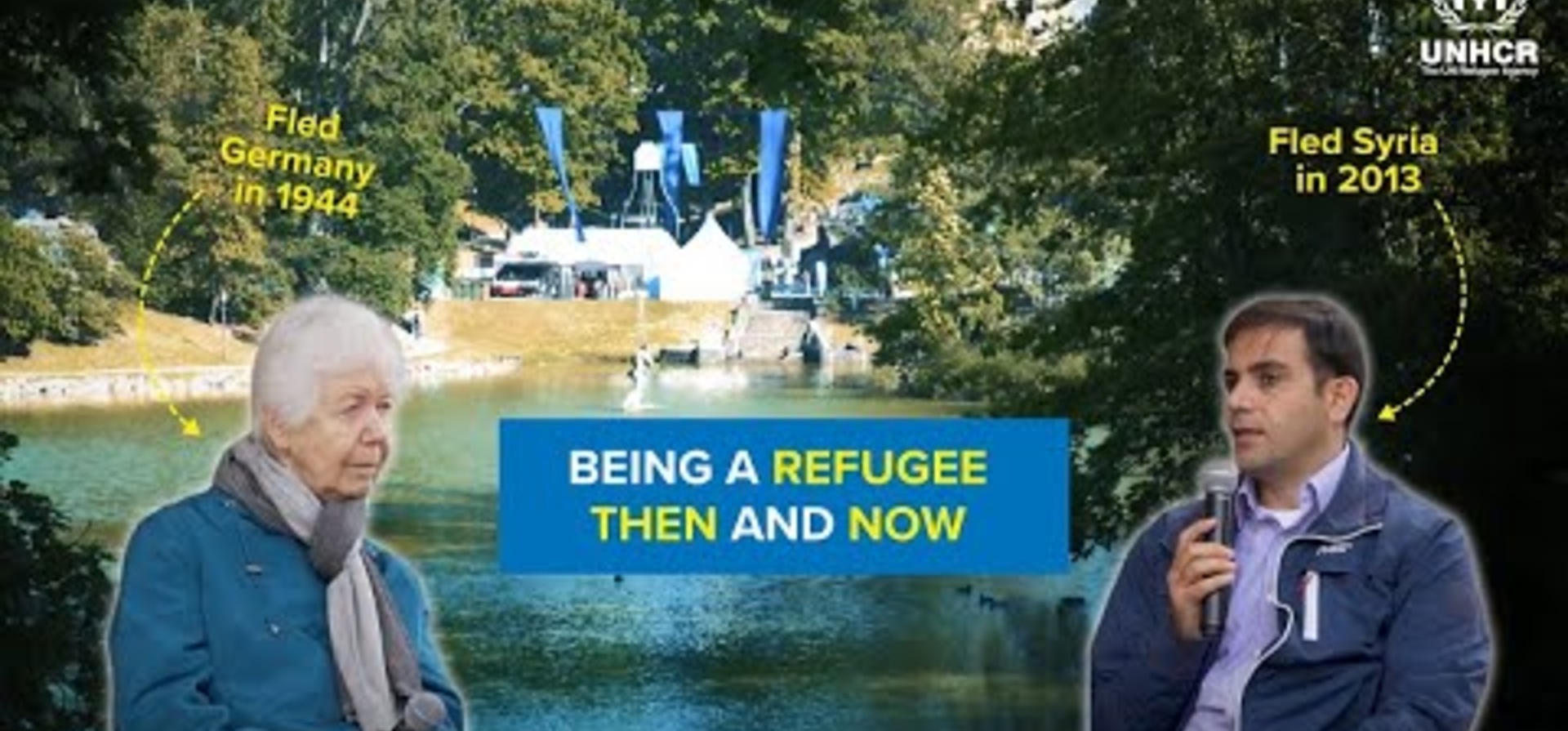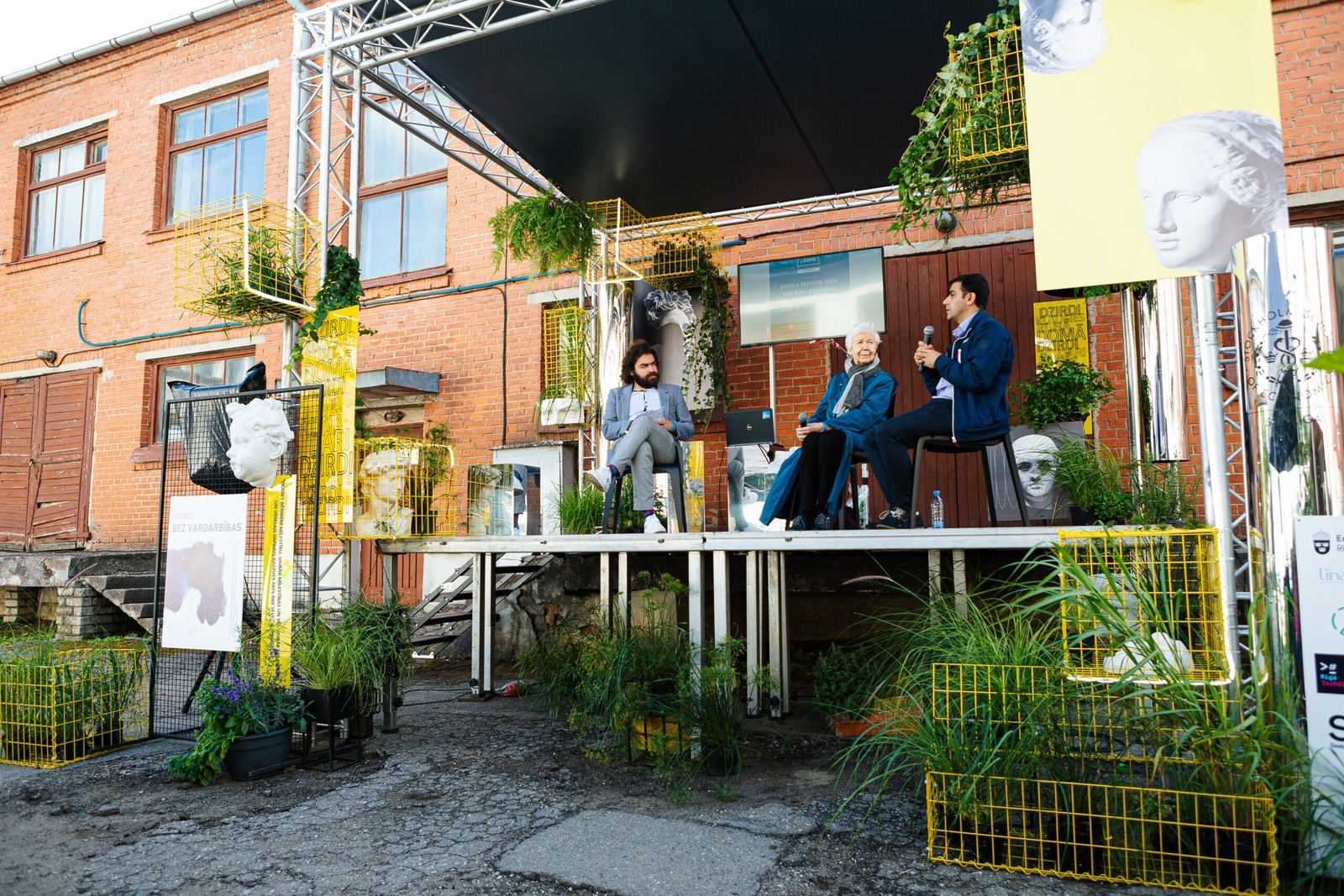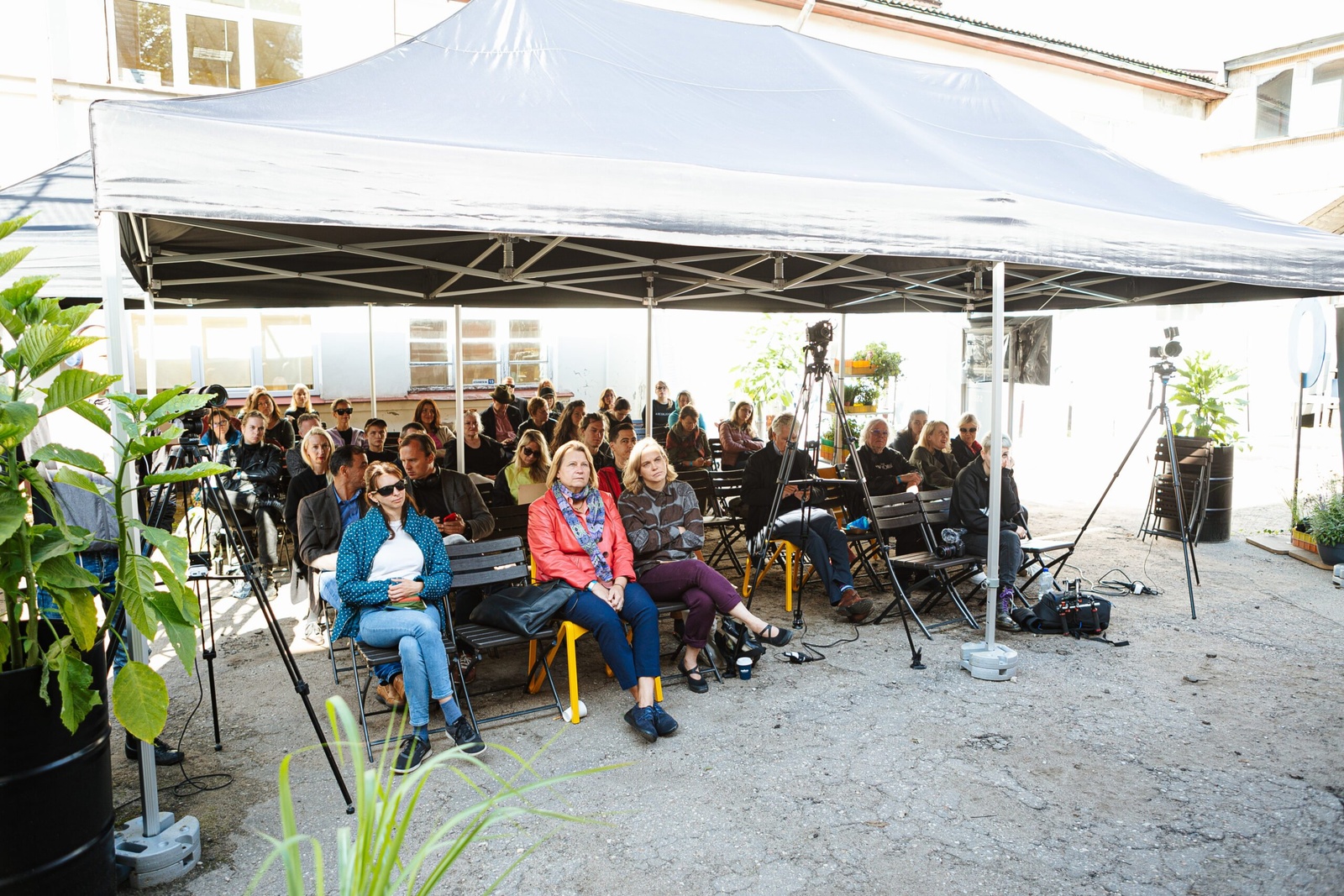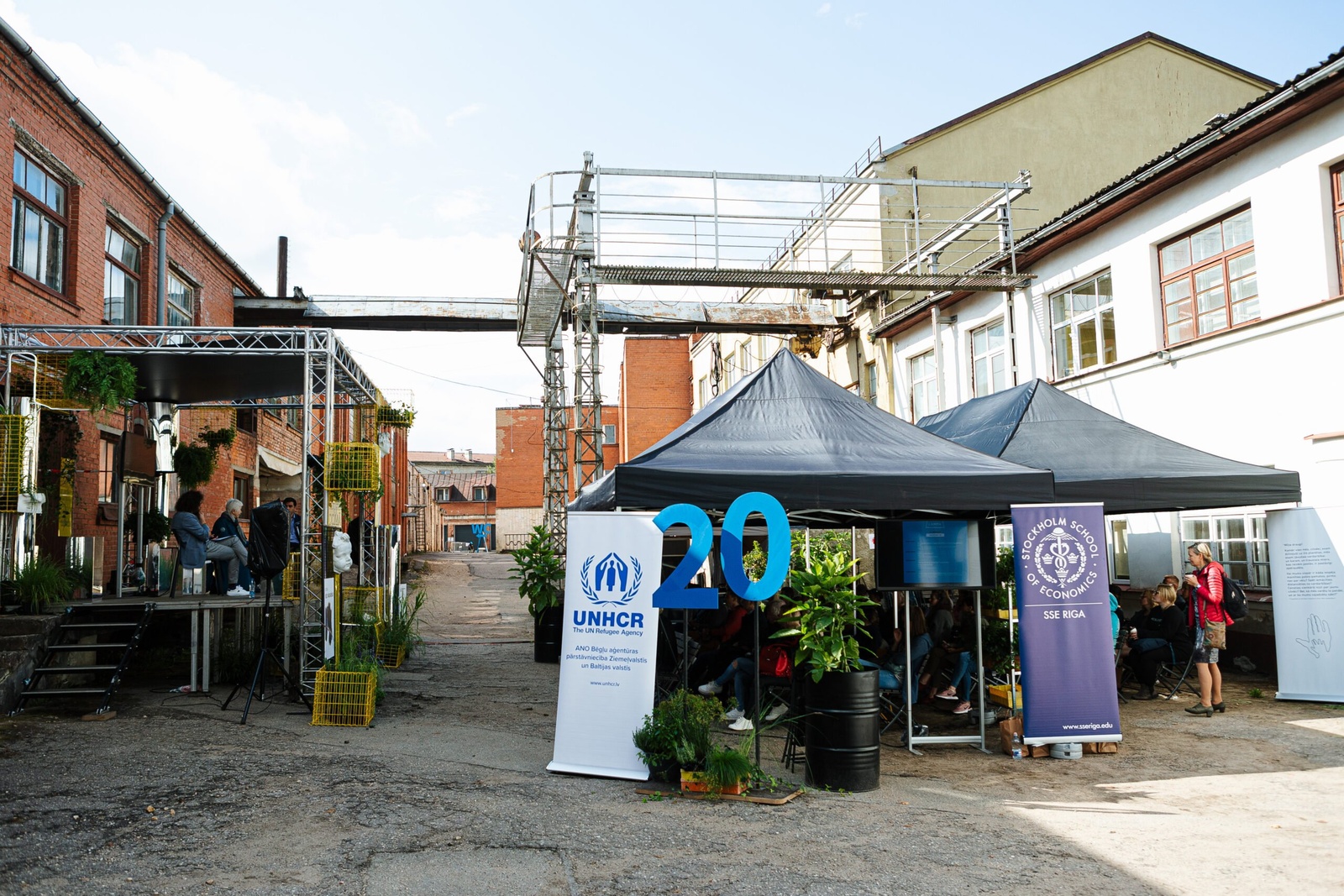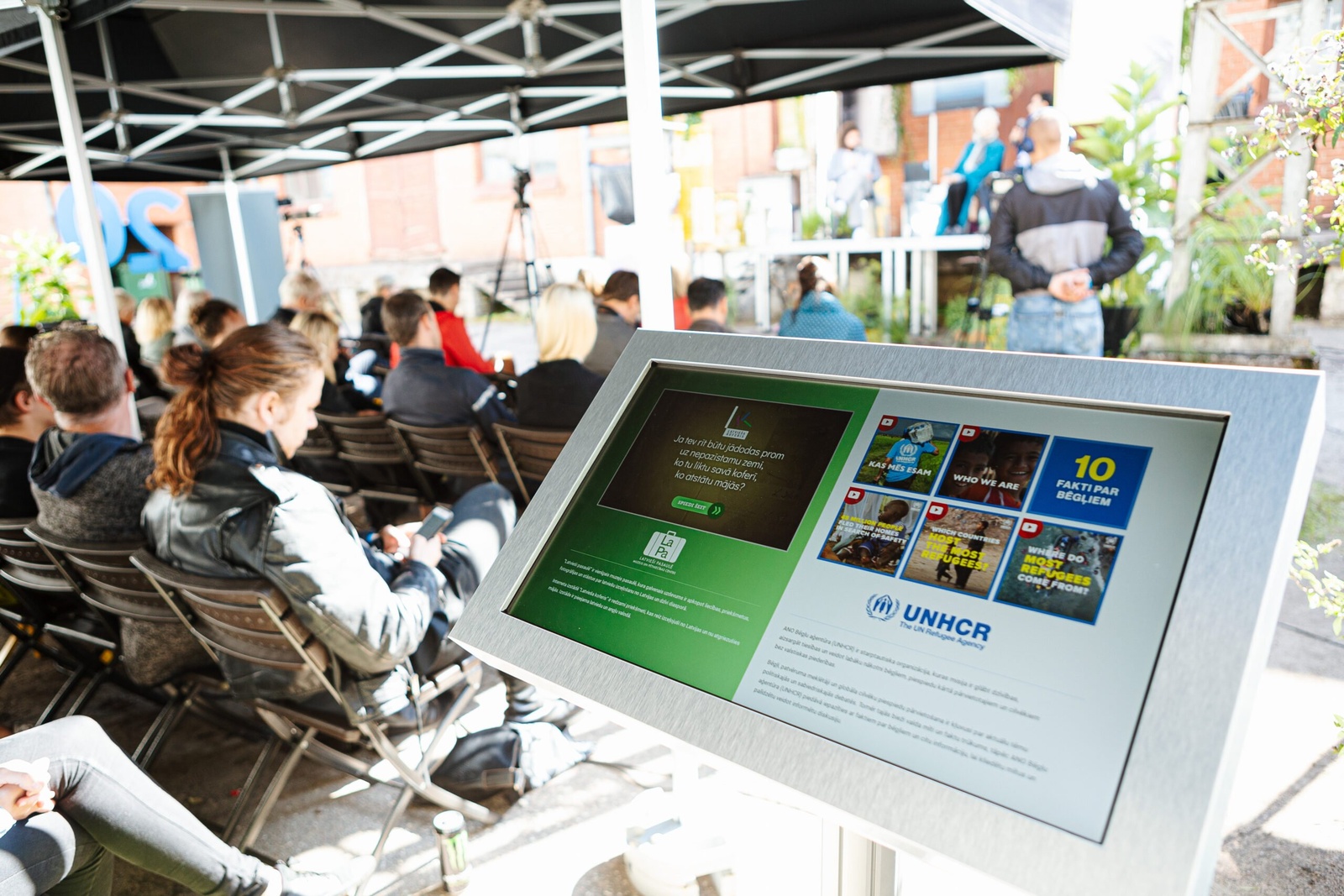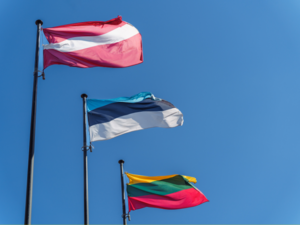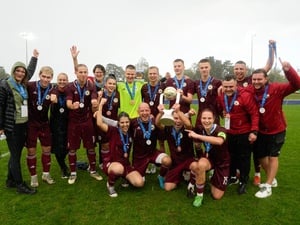“I completely decided that this is my country”
What is home? And for people forced to flee their country, what does it take to create a new home and get a sense of belonging in the country that has provided safety and sanctuary?
Those are questions that millions of refugees are faced with – not only today, but also throughout history.
At this year’s LAMPA Festival in Cēsis, Latvia, highlighting the 70th anniversary of the 1951 Refugee Convention, UNHCR together with partners zoomed in on those complex questions of identity and belonging – and had two persons with strong personal experiences discuss them.
Aladin, a Syrian refugee who has recently arrived to Latvia, and Lalita, a Latvian national who fled the country during World War II. The two shared their stories, unfolded their journeys as refugees and discussed how they adapted and created new homes.
Lalita fled Latvia in 1944 to Germany and later migrated to the United States of America where she completed her high school, university studies and her PhD in Linguistics. She recalled how she did not want to become an American and give up being a Latvian.
“At that time, I was 14 years old, and I was not ready to shred my identity”, she said. “We had to make a home there, there was no way of going anywhere else and we had to make the best of it.”
When arriving as a Latvian in America, it was difficult to fit in, and Lalita remembered how she was met with skepticism:
“The American children had never met anybody who wasn’t born an English- speaker, so I felt kind of out of place.”
Aladin’s story is much more linked to the present. He fled the conflict in Syria in 2013 and settled in Latvia after a long and exhausting journey. Soon after his arrival, he began to actively volunteer and was chosen as Volunteer of the year. This was his way of giving back, he explains.
“Voluntary work, I think, is a sort of duty for me as a foreigner who doesn’t know the language. In order to integrate with any community, you need to do something, engage in some activities, also to learn the language.”
Today, Aladin has lived in Latvia for 9 years, and even if he might not describe himself as “completely Latvian”, he feels strongly that he has found a new home where he is part of the society.
“I’m a member of this country, I feel I belong to this country,” he says. “I was forced to move from my country but I found something not less than my country and maybe better. I was lucky because now I’m really at comfort and I like to be here.”
UNHCR participated in LAMPA Festival in cooperation with Latvians Abroad – Museum and Research Centre and Stockholm School of Economics, Riga.


